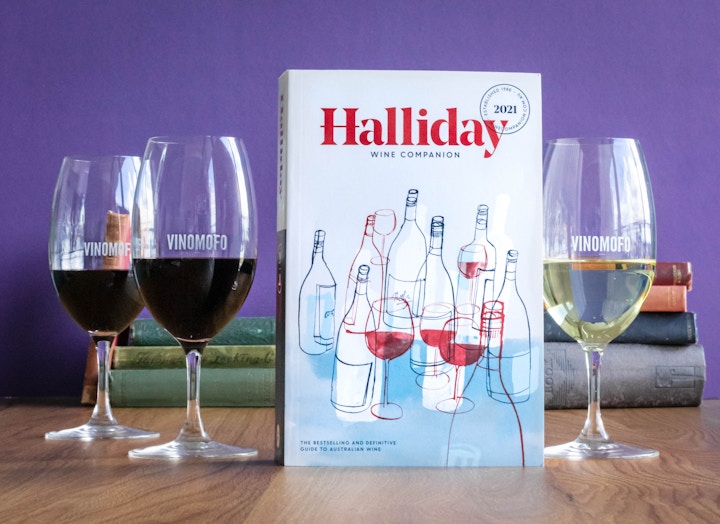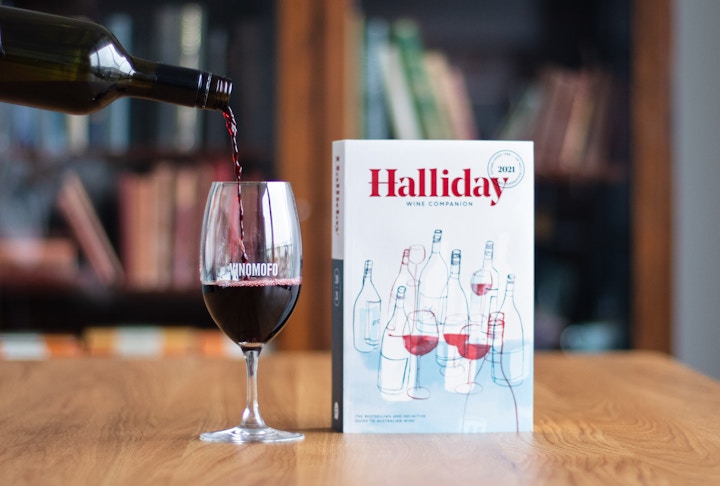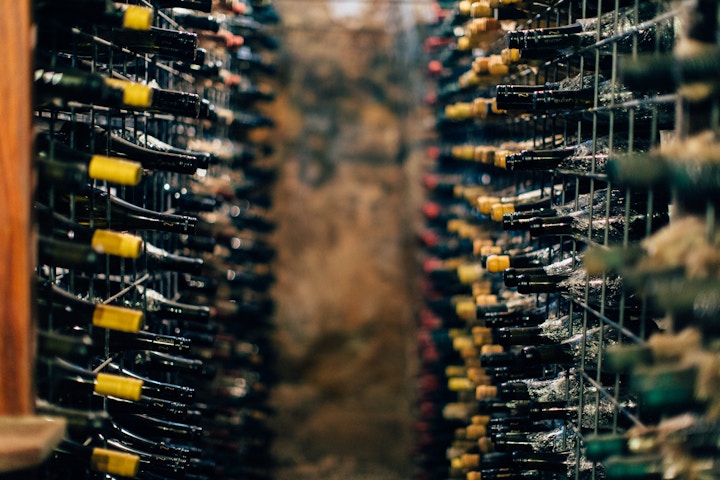Make like a mofo: what does it take to make award-winning wine?
Australia’s favourite, bushiest-browed wine critic has just dropped his list of the best wines and wineries for 2021, and, well, it couldn’t have come at a better time (shoutout to our Melbourne mofos in lockdown!).
We’re talking of course about James Halliday’s Wine Companion. To celebrate the release of this annual wine bible as only Vinomofo can, we’ve pulled together our Halliday’s Heroes packs, and also bringing you a mixed collection of Halliday’s highest point-scorers. Because life – unlike lockdown – is too short to drink bad wine.
We then went one better and asked a few of our favourite winemakers to reveal their trade secrets and let us in on what it takes to make a Halliday award-winning wine. Their answers will hopefully tell you what J-Hal (and his trusty panel) looks for during judging – either that or convince you to ditch your day job for one in wine.
Here’s what they had to say.

The best fruit
You can make bad wine out of good grapes (or ‘fruit’) but it’s impossible to make good wine out of bad ones. So, it follows that the number one most important thing in making an award-winning wine is to kick things off with the best possible fruit.
“Winemakers take the glory,” says Phil Hutchison, winemaker at Leeuwin Estate. “But really, good wine is made from quality fruit. Our job is just to nurture it.”

A tip-top vineyard
Quality fruit comes from a quality vineyard. And a quality vineyard is determined by many things – soil type, the age of the vines (hot tip: the older the vine, the better the wine), crop levels and irrigation. ‘Natty’ winemakers will also take into account things like its celestial energy, and whether it’s right for burying a cow horn or two (that’s biodynamic winemaking for you).
It might come as a surprise, but not every winemaker grows their own grapes – many buy fruit from established growers instead. But, “having control over your vineyard really allows you to get the absolute best from the vines, which shows in the wine,” says Stuart Pym from Flowstone Wines, whose Queen of the Earth Sauvignon Blanc scooped Halliday’s best in category this year. “It is, of course, a long process, and you only get one go a year!”

The perfect climate
Unlike the vineyard, climate is beyond even a winemaker’s control, so planting on a site with the right climate is another secret to snatching up those medals. Why does climate matter?
Temperature, rainfall, wind, the sun a site gets and from what direction – it all impacts how grapes grow and taste. Generally speaking, warmer climate wines are bigger and juicier in flavour (think shiraz from the Barossa), while cooler climate wines are leaner and more savoury (think Yarra Valley pinot noir).
There’s even more to it than that, though. The climate at Leeuwin Estate, for example, is “maritime” according to Hutchison, which is basically winemaker speak for ‘near the ocean’. What this means is that even on super-hot Margaret River days, the ocean sends across a cooling breeze in the mornings and evenings which stops the fruit from ripening too quickly and helps it retain acid – essential to making a fresh but powerful wine.

The right style
There’s a reason certain regions are known for certain grape varietals (Marlborough savvy b, anyone?), and understanding those strengths and playing to them is another important factor in making a wine critics will fawn over. But while this means picking the right grape for the climate and vineyard is essential, it also means picking the right style and expression.
“I love sauvignon blanc wines from the Sancerre and Pouilly Fume regions of France,” says Pym, “but they’re so different from New Zealand sauvignon blanc. It’s about knowing what you want in a wine.”

The winemaking process (… of course)
Okay, so we’ve got excellent fruit from a quality vineyard, grown and picked in perfect weather conditions. So far, so easy. The next step is the whole turning it into wine thing. Steve Webber from De Bortoli Wines says the skill here lies in “knowing when to handle and knowing when to let nature take its course.” It’s also up to the winemaker to decide things like whether to age in stainless steel or oak, when it should be bottled and how long for – even whether to seal it with a cork or a screwcap. “It’s that attention to detail from picking through to packaging,” says Webber.
Somethin’ extra
As well as all the above, Halliday’s award-winning wines will “often have an extra element, or star quality, that makes them shine,” says Amelia Ball, editor of Wine Companion. “These wines will stay with James and the tasting team throughout the months-long tasting process.”
We’ll let you figure out exactly what that special something might be for yourself. Happy tasting, mofos.
Get yourself the best Halliday-rated wines online with our mixed packs and Black Market Deals.

